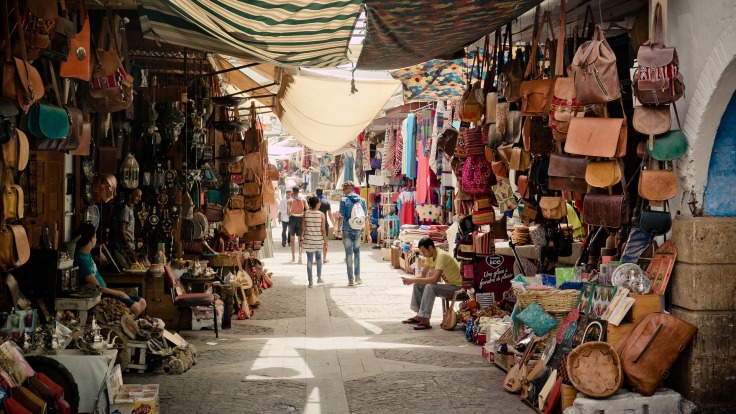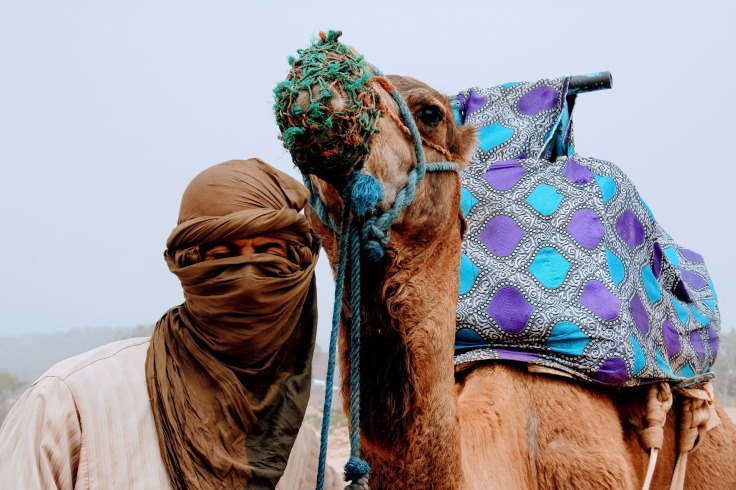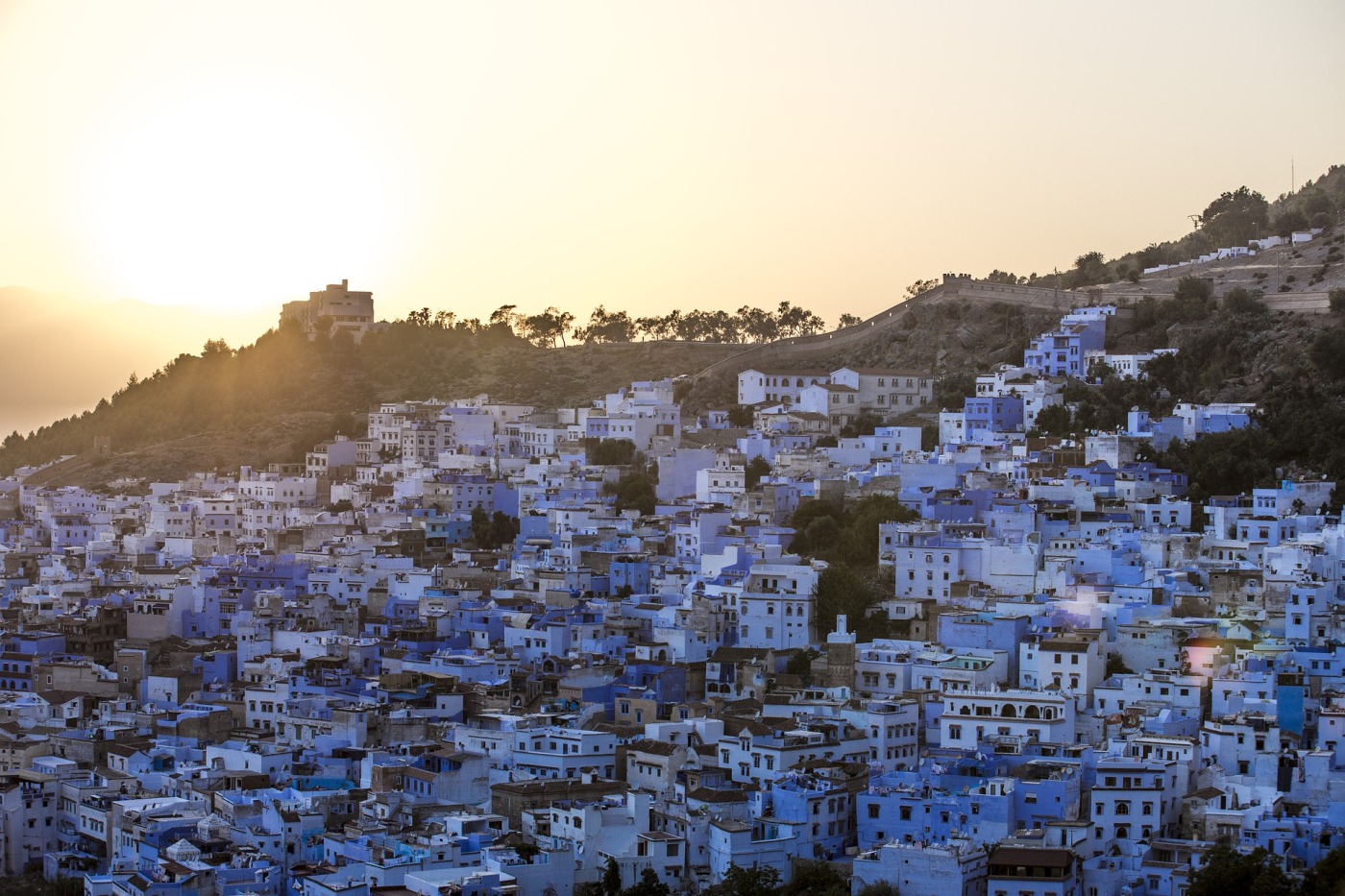There’s no shortage of advice on how to prepare for a trip to Morocco. It’s a popular country to visit, being easily accessible from Europe, incredibly photogenic, and relatively safe for Western tourists while maintaining the enchanting vibrance of Arab and African culture. It can be a very new and surprising country, but navigating the many cultural taboos can feel overwhelming at first.
It’s natural to turn to the internet to seek out the top things to know before visiting Morocco, however, it’s also important to be aware that many articles are written by people who have only visited the country briefly, or not at all. As a result, much of the advice travelers receive is based on stereotypes and misinformation.
In this article, I’ll address some of the most common bad advice about visiting Morocco, and correct it with tips I’ve learned from living in the country.
#1: Dressing modestly will allow you to avoid street harassment

Street harassment in Morocco isn’t always about sex. It’s actually much more complicated than that. (Check out my piece on understanding street harassment in Morocco to find out more.) The important thing, though, is that while dressing immodestly is likely to cause you to get harassed more, dressing modestly will not noticeably lessen the harassment you’re likely to receive.
The idea that being dressed modestly will save you from street harassment is a dangerous assumption to spread around. Many women believe that they will be perfectly comfortable in Morocco as long as they can avoid harassment, but even local women who fully cover themselves will be regularly harassed on the streets. It’s very important to go into your trip aware of the fact that nothing will negate street harassment entirely.
For real, experience-based tips on reducing street harassment, check out this list.
This isn’t to say that dressing modestly has no purpose. A woman visiting Morocco should cover her knees and cleavage (shoulders should be covered in more conservative cities, like Fes) as a matter of respect for the local culture, but the idea that this will somehow protect you from harassment is wholly incorrect. It’s important to know before visiting Morocco that street harassment is pretty much a given.
#2. Women should bring a scarf to cover their heads

This tip is on almost every “things to know before you travel to Morocco” list and it’s almost painfully incorrect. First of all, many Moroccan women don’t even choose to wear a headscarf, so there’s really no expectation that you, a foreigner, will wear one. Since it’s not an essential part of local culture, it doesn’t generally come off as culturally sensitive. Rather, you come off as somebody who planned their trip on bad advice.
There are a number of people who condition this tip with “in case you enter a mosque.” While it’s true that women going into a mosque are required to cover their heads, this tip has two major issues. First, it’s uncommon that Moroccan women even pray in a mosque, as more local ones often only have spaces reserved for men. Second of all, it’s very likely that anybody sharing this tip has never actually been to Morocco, or at least visited for an extended period of time. This is because non-Muslim foreigners in Morocco are not allowed to enter mosques, with the exception of a sanctioned tour of the Hassan II mosque in Casablanca. This tip is a good signpost that the person you’re getting Moroccan travel advice from doesn’t have much knowledge about the country.
No matter where you go, be it a major city or a rural Berber village, as a foreigner, no one will ever force you to cover your head if you are not a practicing Muslim. The only time I have ever seen a Moroccan person recommend that a woman cover her hair with a scarf is in the desert, and only for the express purpose of looking more Instagram-worthy in their camel ride photos. (If you’re legitimately concerned about sun protection, a simple hat and sunglasses will be a more appropriate option.)
#3. You should never trust “helpful” locals.

This common piece of advice dominates blogs about travel in Morocco. Visitors warn each other of tour guides who may lead you into less populated areas of the city and demand tips, shopkeepers who will hustle you out of money, and friendly Moroccan men who don’t really want to be your friend.
While paying attention to potential scams is always important no matter where you travel, this piece of advice is likely perpetuated mainly by people who have spent time only in Marrakech—Morocco’s major tourist hub, where locals love cashing in on the ignorance of wealthy Europeans.
However, I recommend against following this advice to the letter for several reasons.
First, Morocco isn’t really all that dangerous (beyond the normal levels of concern for safety that any traveler in any country should have.) In reality, it’s only your money that’s at stake when people talk about these common local scams.
Second, the money you’ll be scammed out of will likely be a dirham or so, less than a dollar back home. So while being careful is always a good call, learning a lesson really isn’t the end of the world. When I think of the several dirham cost of falling for a scam or two and weigh it against the number of Moroccan people I’ve had legitimately positive interactions with, I’ll gladly lose that money.
This leads me to my final point: that a lot of locals are legitimately friendly people. This may be less true in Marrakech, where the citiy is flooded with thousands of unruly tourists, but in smaller cities, you’re much more likely to encounter people who are helpful or curious. For example, in less frequently trafficked areas, it’s pretty common that some younger locals may just want to talk to you to show off their English. I’ve also gotten out of some bad situations by trusting the help or advice of a Moroccan person who stepped in to save me.
The bottom line is: don’t be an idiot when it comes to following people down alleyways and handing out cash, but don’t be too quick to write off any local who tries to talk to you, either.
So which locals are scammers, and which are friendly?

If you’re worried about who to trust, remember that Morocco runs on connections, so if you do people favors, people will do favors back to you. If you’re only in town a few days and not going to be around to build relationships, then nobody has any incentive to help you out or avoid scamming you.
You can combat this by letting people know if you’re a student or expat. If you’re only in town for a few days, try to pick a favorite café or restaurant to frequent. Tip well, be friendly and respectful, and the restaurant owners will likely be happy to pay it forward and offer great Moroccan travel advice or help you organize reliable rides and tours.
So who’s getting it right?
The best article I’ve seen about things to know before visiting Morocco is this one from CNN. It not only includes highly accurate advice, but also some interesting fun facts that most other articles don’t cover.
Have any other questions about what you need to know before going to Morocco? Feel free to let me know in the comments or email me.

We are just back from 3 weeks in Morocco and I can confirm that you are totally right about all of these “wrong” advice. Very nicely put…Thanks! (Suzanne)
LikeLike
Thanks for sharing.
LikeLike
Great article. Like it how you present it.
I have just been to Morocco, and your writing is apt and to-the-point. My travel experiences and my travel pictures are documented in my travel blog as well. I would highly appreciate it if you take some time out and review my travelogue, write down your review comments and if you like the content, follow my work. I would love to do the same as well!
LikeLike